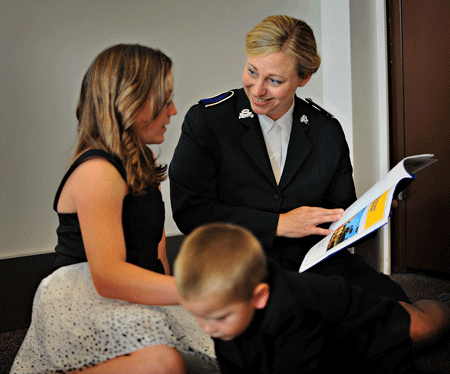Are you judgmental or are you simply absolutely right about everything?
by Robert Docter –
Judgmentalism is much more than simply being unkind. It’s destructive. It erodes relationships. It contaminates one’s spirituality. It reveals bitter hostility. It diminishes other human beings. There’s nothing good about judgmentalism.
In the current vernacular, judgmentalism occurs when someone without authority expresses a negative opinion concerning the worth of another person. It’s often expressed as a label designed to hurt someone or damage them in the eyes of another.
We make judgments all the time. They stretch from how to dress for the day’s weather to the most appetizing dish within my means on the menu. This is sound use of mental resources.
Judgmentalism, however, goes far beyond simply making judgments. It is based on the premise that, in the absence of verifiable evidence, we have the right to stand in judgment in relation to the choices and behaviors of others.
We travel though life constructing pecking orders—assigning to some more value than we assign to others. We communicate our thoughts and beliefs about that person widely. If we have influence with those around us, they begin to embrace the same point of view.
Simply because of the way others are treating that person, he or she may begin to act in the manner they have perceived others expecting them to act. Often we go through life fulfilling the expectations of others around us.
Sometimes our judgmentalism is expressed with dignified subtlety as the target takes the blade without even feeling it. Sometimes, we use a blunderbuss and simply blow the target away. Sometimes it sounds like two children calling each other names on the playground.
We make judgments about people’s intellect, about their physical attractiveness, about the state of their mental health, about how well they drive their car, about the effectiveness of the content of their speech, about the style of their clothes. Once you begin to fall into the quagmire of judgmentalism you begin to make judgments about the worth of everyone in relation to everything.
Judgmentalism always injures someone. It always does harm. The problem comes because it’s so human, and because it’s human, it’s so pervasive. Our judgmental acts keep being reinforced by others engaged in their judgmental acts.
Why do we need to slice each other up so viciously? Could it possibly be that we have some tentative beliefs about our own inadequacies? We have discovered that we have not yet achieved perfection, and so we move to prevent others from observing that reality by going on the attack.
Thus, we make sure that we ourselves are perceived as the “top-dog.”
Whatever happened to tolerance—or has it even made its appearance yet within the human race? Have we forgotten how to be open-minded and accepting of one another? Can’t we find ways to embrace with patience the notion that people grow toward positive ends as they begin to believe in themselves and their ability to achieve those ends? Isn’t this what Christian love is all about?
We need an anti-judgmentalism course in Sunday school.
The course could begin with Jesus’ simple reminder that we are not to judge others, and if we do, we will be judged by the same criteria we impose on them. It could go on to Paul’s writing in the 14th chapter of Romans. Who are you to judge someone else’s servant? To his own master he stands or falls. And he will stand, for the Lord is able to make him stand. (Romans 14:4).
We need to change our interpersonal habit patterns and leap out of the tendency we have to judge everyone. I like the way the way Eugene Peterson begins that 14th chapter in The Message.
Welcome with open arms fellow believers who don’t see things the way you do. And don’t jump all over them every time they do or say something you don’t agree with—even when it seems they are strong on opinions but weak in the faith department. Remember, they have their own history to deal with. Treat them gently.
Now—let’s talk politics.












